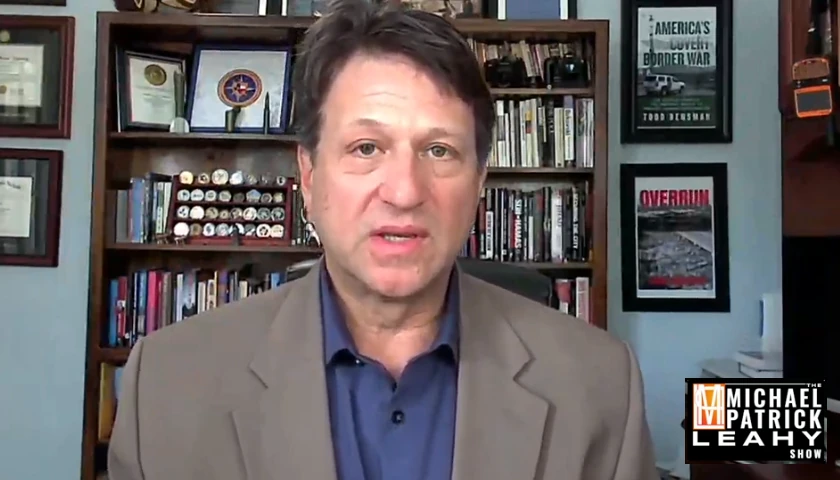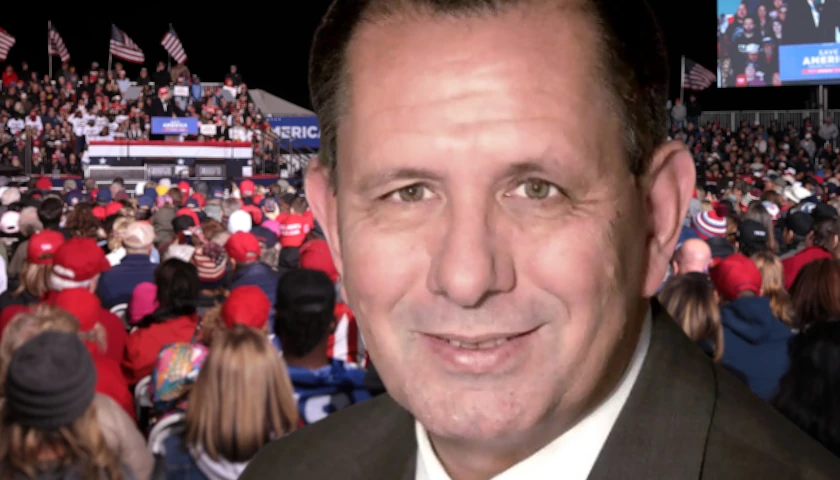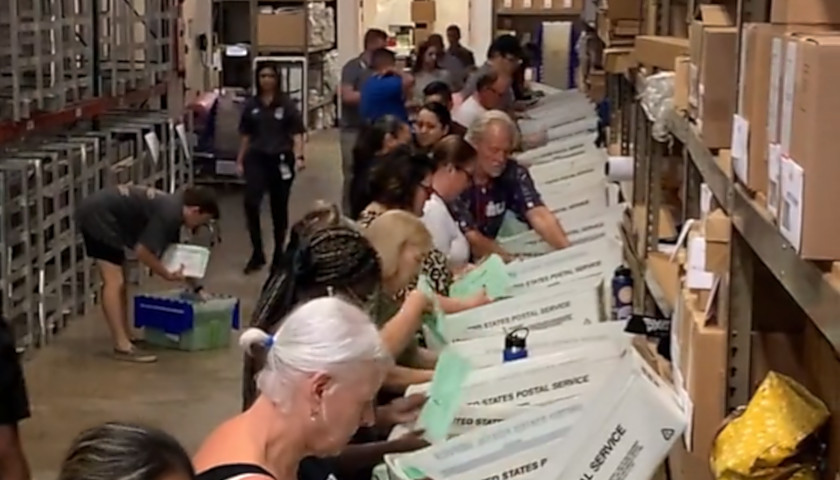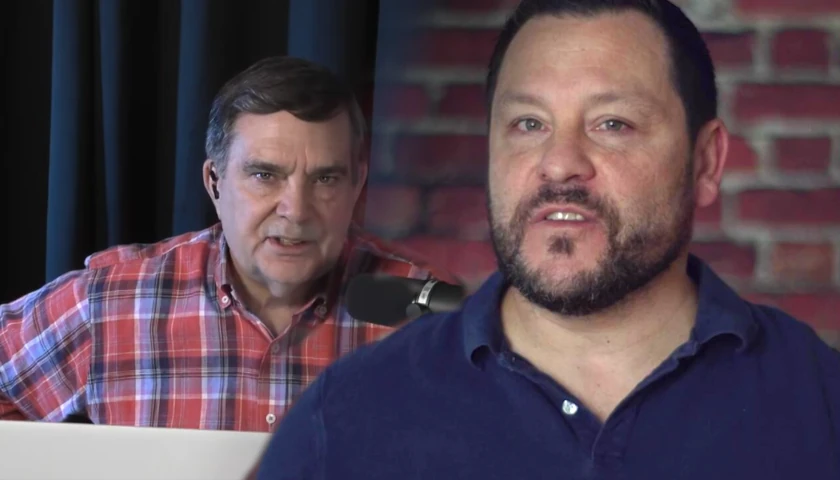Live from Music Row Friday morning on The Tennessee Star Report with Michael Patrick Leahy – broadcast on Nashville’s Talk Radio 98.3 and 1510 WLAC weekdays from 5:00 a.m. to 8:00 a.m. – host Leahy welcomed openthebooks.com Founder Adam Andrzejewski to the newsmaker line to unravel Silicon Valley Bank’s ties to California Governor Gavin Newsom.
Leahy: To the issue of honesty, cover-up. Silicon Valley Bank, all the roads are leading to Governor Gavin Newsom. Adam, thanks for joining us.
Andrzejewski: Thanks for having me on. I appreciate coming back on the program.
Leahy: Crom and I were here talking; there’s a lack of honesty and integrity. I think in your latest column at Openthebooks substack, you’re pointing out that there’s a coverup about Governor Gavin Newsom’s involvement with the Silicon Valley Bank. Which as everybody knows, failed spectacularly. Adam, tell us more about that.
Andrzejewski: So incredibly Silicon Valley Bank through their investment banking arm bought stakes in three of Governor Gavin Newsom’s private businesses. That was broken by The Intercept.
Here’s what we broke at openthebooks.com. We put the other half of the story together that the president of the Silicon Valley Bank’s investment banking arm, his name is John China.
Leahy: Whoa, whoa. No.
Carmichael: Are you making that up?
Leahy: Are you making that up?
Andrzejewski: I’m not. I’m not making it up. His name is John China. It is.
Carmichael: At least you didn’t say his name was Hunter China. (Laughter)
Andrzejewski: There is a real question. Is the Chinese influence being funded out of that investment banking arm as well? But no, his name is actually John China, and he’s a good friend of the Newsom’s. He’s right in the mix of Newsom Inc., as we call it, at openthebooks.com. We found that he is a founding board member of Newsom’s nonprofit, the California Partners Project.
What is the California Partners Project? It’s a nonprofit expressly created to push the public policy agenda of Jennifer Siebel-Newsom, the wife of Governor Gavin Newsom. She calls herself the first partner. The first thing Governor Gavin Newsom did when he was inaugurated was he established this public office for his wife.
A subdivision of the office of governor, it’s called the office of the first partner. It’s got nine staffers and a million-dollar-a-year appropriation of taxpayer money. Five million dollars since 2019 has gone into this office, but it wasn’t enough. They established this nonprofit to bring in more funding, more staff, and more political lobbying muscle behind his wife, Jennifer Siebel Newsom’s public policy agenda.
The first thing they passed incredibly was gender quotas on corporate boards, and they were patting themselves on the back with Silicon Valley Bank’s John China, the Newsom’s, when they passed, signed this into law, but even a California court threw it out because obviously, it was discriminatory. Judicial Watch sued them and got that law thrown out.
Carmichael: I’m really interested in this thing where you’re saying the Silicone Valley Bank in their private investment arm invested. When they collapsed, did they still own interests in three of Newsom’s companies?
Andrzejewski: Yes. They disclosed it on their website. And this begs a lot of questions. We know what the questions are, right? They’ve got the regulators, now that the bank has failed, they’ve got to open the books on the good friend of the Newsom’s, the head of the $5.5 billion investment pool of money that bought stakes in three of his businesses.
Did they overpay for the governor’s business? Was he able to pull chips off the table, pull money out of, take money and risk off the table for himself personally, because of the deep relationship with the head of the Silicon Valley Bank’s investment business? We don’t know the answers to that, but we need that transparency.
Carmichael: So you’re saying the Silicon Valley bank had a $5.5 billion private investment organization or entity within their holding company or within their bank that took $5.5 billion and made direct investments in private companies, three of which were in entities where Newsom was a material shareholder. Do we know the names of those three companies and the amount of the investments?
Andrzejewski: We don’t know the amounts. That’s not disclosed, but we do know the names. There are three wineries, I forget the third one, but the second one is Plump Jack. Two of the wineries are pretty well-known brands and so we don’t know the amounts, but certainly, all of this needs sunshine on it.
Leahy: If you look at this, will the equity interests of the Silicon Valley Bank and these three businesses owned by the governor of California be liquidated?
Carmichael: And then the question is whether or not they’ll be liquidated at a preferential rate if these wineries are doing well. (Andrzejewski laughs) If the voters get angry…
Andrzejewski: It will really open a can of worms. What if Newsom buys back the interest from Silicon Bank in his own business at a discounted rate than what they purchased it for? It gets really interesting very quickly.
Carmichael: John Steinbeck wrote a book for if the voters get mad about these winery deals The Grapes of Wrath. (Laughter)
Leahy: Boom, chakalaka.
Carmichael: This is very interesting, especially if those numbers. If it’s a couple hundred thousand dollars each, it’s not that big a deal. But if it’s five or $10 million that’s real money.
Leahy: By the way. Adam, can you find out how much was spent, and how much was invested by Silicon Valley Bank in those three businesses owned by Gavin Newsom?
Andrzejewski: They’re private transactions, but now that the Fed has taken over the bank, look, we need to know. I think there needs to be transparency on this, and the regulators and law enforcement need to start asking the proper questions because here’s what we do know.
The governor himself solicited, he requested a six-figure $100,000 gift for his nonprofit from John China through Silicon Valley Bank, and they paid it. They gave $100,000. It was so close to Newsom that under California ethics law, they had to post that $100,000 gift as behested, as a requested gift on a state ethics website.
That money should be paid back to the bank from Newsom’s nonprofit. And we’re issuing the clarion call that they paid $100,000 back. This was given in 2021, so not that long ago. The depositors, the investors, and now the taxpayers, deserve to have that six-figure gift back in the bank.
Leahy: Absolutely. Adam, a great reporting on your part. Hey, can you come back and tell us what the resolution of this is going to be?
Andrzejewski: Absolutely. I look forward to it.
Leahy: It’s a lot of money and this needs to be transparent, Adam, with Openthebooks.com. Thanks so much for joining us. Come back again if you would please.
Andrzejewski: Thank you so much for having me.
Listen to today’s show highlights, including this interview:
– – –
Tune in weekdays from 5:00 – 8:00 a.m. to The Tennessee Star Report with Michael Patrick Leahy on Talk Radio 98.3 FM WLAC 1510. Listen online at iHeart Radio.
Photo “Adam Andrzejewski” by Adam Andrzejewski. Background Photo “Silicon Valley Bank” by Tony Webster. CC BY 2.0.



